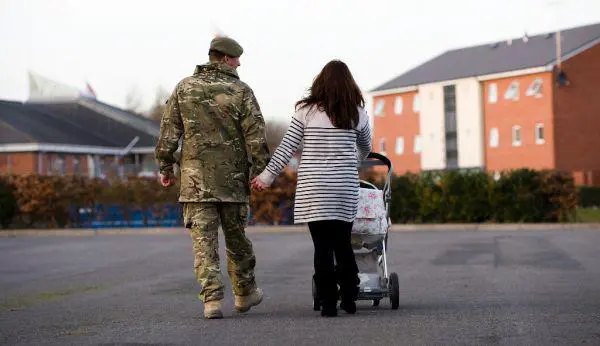Political party crossovers, election law violations and an intense debate over Sri Lanka's economic future are the main ingredients that spice up the island' s presidential election scheduled for early January next year.
Incumbent President Mahinda Rajapaksa signed on Nov. 20 the proclamation, calling for presidential election where he is seeking a third term though he still has two more years to complete his current term.
The decision has split the ruling coalition, with the nationalist party, the Jathika Hela Urumaya (JHU), leaving the president's party and forming a coalition with the main opposition United National Party (UNP) and former President Chandrika Bandaranaike Kumarathunga.
Less than 48 hours after the split, the opposition coalition announced that it was fielding Health Minister Maithreepala Sirisena, the secretary general of Rajapaksa's own party, the Sri Lanka Freedom Party (SLFP), as its candidate for the presidential election.
Suddenly, the presidential race was blown wide open and what was seen as a largely one-man presidential race given Rajapaksa's formidable political machine is now a two-way contest that would determine Sri Lanka's future.
Despite the presence of 15 other presidential candidates, the race is definitely between Rajapaksa and Sirisena.
While most analysts here were keen to back Rajapaksa during a fierce war with the Liberation Tamil Tigers of Eelam (LTTE) that ended in 2009, many have since been critical of his administration because of alleged rampant corruption and nepotism.
"I will end the executive presidency within 100 days once I become president," Sirisena said in the opening salvo of his campaign. He was referring to the sweeping powers of the presidency under Rajapaksa.
Within hours after his announcement to leave the ruling coalition and run for president, Sirisena's colleagues in the Cabinet were stripped of their portfolios.
Fisheries Minister Dr. Rajitha Senanayake and Education Services Deputy Minister Duminda Dissanayake crossed over to support Sirisena along with 13 parliamentarians and a few other officials at the provincial level.
Not to be outdone, President Rajapaksa also managed to poach a bigwig from the main opposition UNP, Secretary General Tissa Attanayake, who was immediately sworn in as the new health minister.
The opposition is focusing most of its energies on alleged corruption, nepotism, abuse of power and mismanagement of the government and the economy, charges that have been vehemently denied by Rajapaksa and his party.
It is a fact, however, that one of Rajapaksa's siblings is the speaker of parliament, another one the influential economic development minister, and a third brother the powerful minister of defense.
"We will follow the law. It is time we gave the justice system its independence back. We will prosecute corrupt politicians shielded by this government," Sirisena pledged at the launch of his economic manifesto this week. He urged the people to take the first step in good governance and vote for him on Jan. 8.
President Rajapaksa, in contrast, has chosen to revisit his war victory in 2009 and highlight massive infrastructure development during his term. Sri Lanka has seen a boom in infrastructure projects, such as highways, railways, a second international airport and port, all built largely from Chinese loans. Sri Lanka is also a crucial part of China's 21st Century Maritime Silk Road initiative.
But many are worried about the country's foreign debt that is estimated at more than 5 billion U.S. dollars and still growing.
"I promised to end the war and I did. Then I promised to develop the country and this too I have done. During a third term you can have confidence I will continue to fulfill my pledge to create a prosperous Sri Lanka," Rajapaksa told thousands of loyalists at his recent inaugural election rally.
The government has also slashed prices of many essential goods, including fuel, gas and electricity, hoping to win more votes. Thousands of government officials have also been given a range of perks, including hikes in salary allowances and even motorbikes.
This lavish spending and rampant advertising of Rajapaksa's development initiatives has drawn criticism from the opposition who insisted that the handouts are illegal and violate election law, a claim denied by the government.
Polls monitors have also warned that the tense campaign will spawn significant rise of violence with 19 people already hospitalized from clashes between supporters of the two main candidates. Over a hundred other violations, including at least eight shooting incidents, have also been reported to monitoring organizations.
The International Crisis Group, an independent conflict- prevention organization, said in a report this week that the unexpectedly strong challenge had raised the likelihood of election-related violence and fraud.
Because of his role in defeating the Tamil Tiger guerrillas and massive infrastructure projects, Rajapaksa is still popular with Sri Lankan voters, particularly those in the rural areas.
"When we see these development projects in our locality, how can we not vote for the president? Before, no one ever paid attention to us," 76-year-old D. B. Wimalasena told Xinhua reporters during their tour of the president's hometown of Hambantota where Rajapaksa remains extremely popular.
But people in urban areas are more skeptical about Rajapaksa's 10-year rule, saying that the president has failed to deliver his promises of economic growth.
"I will vote for Sirisena this time," Ruwan Perera said, "There is too much corruption. We need to bring back proper democracy."
Perera, who lives in the southern coastal town of Matara and works in the state-run railway department, said that his status as a state employee would not deter him from voting for the opposition.
 简体中文
简体中文



